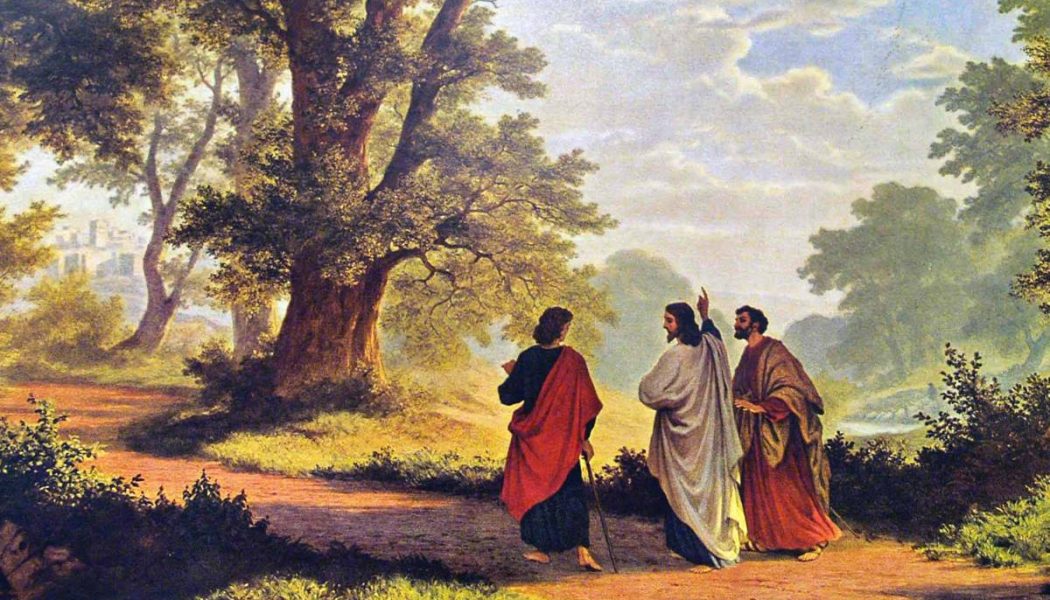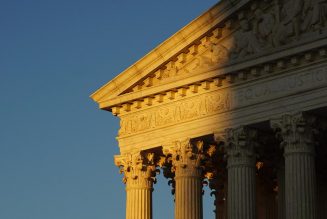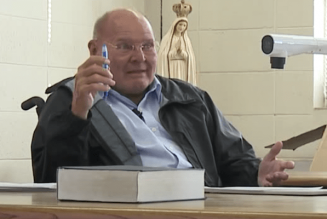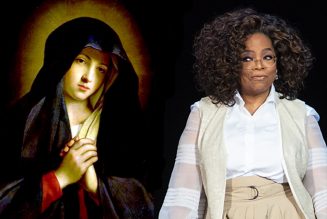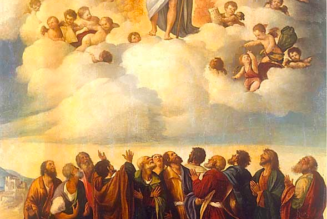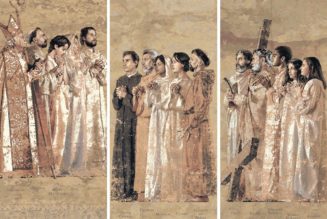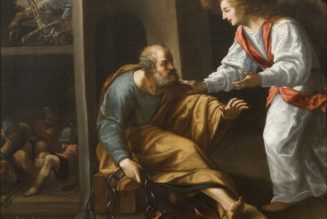
Jesus the Unique Savior. How do we know that Jesus was someone and something different than the numerous religious leaders or founders of religions that have appeared on the stage of world history over the centuries? Last week, we saw one way that he is different: unlike Buddha, Mohammed, or Zarathustra, Jesus rose from the grave after his death, appearing and talking to his followers at length. In this week’s liturgy, we examine another remarkable piece of evidence for the uniqueness of Jesus: the fact that his suffering and resurrection were strikingly foreshadowed by the sacred writings of the prophets of Israel, hundreds of years before his earthly sojourn.
The Nicene Creed stresses: “For our sake he was crucified under Pontius Pilate, he suffered death and was buried, and rose again on the third day in accordance with the Scriptures.” The inclusion of this line the most widely-used and recognized statement of the Christian faith should cause us to realize: the fact that Jesus’ Passion and Resurrection fulfilled the oracles of the prophets is central to the Gospel message. Moreover, in the early Church, it was of considerable apologetic and evangelistic power, because no other religious or political leader could claim to have fulfilled ancient prophecies in the way that Jesus had.
1. Our First Reading is Acts 2:14, 22-33:
Then Peter stood up with the Eleven,
raised his voice, and proclaimed:
“You who are Jews, indeed all of you staying in Jerusalem.
Let this be known to you, and listen to my words.
You who are Israelites, hear these words.
Jesus the Nazarene was a man commended to you by God
with mighty deeds, wonders, and signs,
which God worked through him in your midst, as you yourselves know.
This man, delivered up by the set plan and foreknowledge of God,
you killed, using lawless men to crucify him.
But God raised him up, releasing him from the throes of death,
because it was impossible for him to be held by it.
For David says of him:
I saw the Lord ever before me,
with him at my right hand I shall not be disturbed.
Therefore my heart has been glad and my tongue has exulted;
my flesh, too, will dwell in hope,
because you will not abandon my soul to the netherworld,
nor will you suffer your holy one to see corruption.
You have made known to me the paths of life;
you will fill me with joy in your presence. (Ps 16)
“My brothers, one can confidently say to you
about the patriarch David that he died and was buried,
and his tomb is in our midst to this day.
But since he was a prophet and knew that God had sworn an oath to him
that he would set one of his descendants upon his throne,
he foresaw and spoke of the resurrection of the Christ,
that neither was he abandoned to the netherworld
nor did his flesh see corruption.
God raised this Jesus;
of this we are all witnesses.
Exalted at the right hand of God,
he received the promise of the Holy Spirit from the Father
and poured him forth, as you see and hear.”
The Logic of the Easter Season Readings. In the Easter Season, the Readings follow a certain pattern. The run to the empty tomb (John 20:1-9) is always the Gospel for Easter Sunday. The Second Sunday of Easter reads the Appearance of the Risen Lord to the Apostles and to Thomas in the Upper Room (John 20:19-31). The Third Sunday always reads one of the other well-known post-Resurrection appearances: Emmaus Road (A: Luke 24:13-35); the Easter Evening Appearance to the Disciples (B: Luke 24:35-48; the same event as John 20:19-23); or the Appearance to the Apostles in Galilee (John 21:1-19). The Fourth Sunday of Easter (halfway point of the season) is “Good Shepherd Sunday,” when John 10 (the “Good Shepherd Discourse”) is always read. The Gospels of the Fifth, Sixth, and Seventh Sundays are always taken from the Last Supper Discourse (John 13-17), where Jesus teaches about the Holy Spirit and the Church. These teachings were meant to prepare the Apostles for the reception of the Holy Spirit and the beginning of the Church age, so they are very appropriate as a lead-up to the celebration of Pentecost.
The First Reading during Easter is typically taken from the first half of Acts, covering key events in the early development of the Church, while carefully avoiding the accounts of Ascension and Pentecost which have to be saved for those Feast Days. The Second Reading rotates between 1 Peter (A), 1 John (B), and Revelation (C).
David Spoke of Jesus. Now, back to this Sunday’s First Reading: it consists of Peter’s famous sermon just after the outpouring of the Holy Spirit at Pentecost. Our Reading omits the opening section of Peter’s argument (vv. 15-21) to concentrate on the Apostle’s exegesis of Psalm 16.
St. Peter is speaking to Jews who believed together with him that the Psalms were largely penned by David. Psalm 16 presents a bit of a conundrum to the ancient Jewish interpreter, however, because David claims, “For you will not abandon my soul to Sheol, nor let your Holy One see corruption.” Yet David did indeed die, his body decayed, and the traditional site of his tomb was venerated by Jews in St. Peter’s day. So there was no fully satisfying explanation of this verse for pious Jews in antiquity.
St. Peter appeals to a widely held Jewish interpretative principle for the Psalms, namely, that many of them are prophetic, being spoken about or in the voice of the Messiah. If Jesus is the Messiah, Psalm 16 suddenly becomes explicable. Psalm 16 is sacred Scripture and therefore must be true. However, its literal sense is obviously false if applied to David himself. Therefore, the voice of the Psalm must be someone else. If David wrote it in the prophetic voice of the Messiah (as Isaiah wrote Isaiah 61:1-3, for example), the literal sense now becomes true. The Messiah is Jesus, who was not abandoned to the netherworld (Hades) and whose body did not see decay, but was raised up by God.
St. Peter’s argument would not convince the modern skeptic, who dismisses the very possibility of divine revelation, not to mention the Davidic authorship of the Psalms. But to the believing Jews of his own day, St. Peter’s argument was compelling: the life, ministry, death, and resurrection of Jesus Christ was an “interpretive key” or “hermeneutical lens” that suddenly made sense of mysterious passages of the Israelite Scriptures that had languished in obscurity for centuries. In hindsight, the prophetic writings of Israel had been anticipating this remarkable Jesus of Nazareth all along. Psalm 16 was, apparently, a favorite of the Apostolic preaching, because St. Paul makes the same exegetical argument from this Psalm in his first recorded sermon, in Acts 13:35-37.
2. Responsorial Psalm Ps 16:1-2, 5, 7-8, 9-10, 11:
R/ (11a) Lord, you will show us the path of life.
or:
R/ Alleluia.
Keep me, O God, for in you I take refuge;
I say to the LORD, “My Lord are you.”
O LORD, my allotted portion and my cup,
you it is who hold fast my lot.
R/ Lord, you will show us the path of life.
I bless the LORD who counsels me;
even in the night my heart exhorts me.
I set the LORD ever before me;
with him at my right hand I shall not be disturbed.
R/ Lord, you will show us the path of life.
Therefore my heart is glad and my soul rejoices,
my body, too, abides in confidence;
because you will not abandon my soul to the netherworld,
nor will you suffer your faithful one to undergo corruption.
R/ Lord, you will show us the path of life.
You will show me the path to life,
abounding joy in your presence,
the delights at your right hand forever.
R/ Lord, you will show us the path of life.
Being “Faithful.” Appropriately, the Psalm is the one cited by St. Peter in the First Reading. Psalm 16 is a quiet prayer of trust in the Lord. The key verse is 10, literally from the Hebrew: “For you will not abandon my soul to Sheol; you will not permit your faithful one to see [the] Pit.” The phrase “faithful one” is hesîdeka, “the one who practices hesed toward you.” Hesed is, of course, a key covenant concept that we have discussed before, denoting “covenant love” or “covenant fidelity.” It is the root for the term Hasidic, which describes “ultra-orthodox” Jews. The point for us is that the Psalm describes one who is in covenant relationship with the Lord. We have been placed in such a relationship by the covenant ritual of Baptism, and continually renew that relationship by the covenant ritual of the Eucharist. Such a person may trust in the Lord for eternal life.
Eternal Life. Most Old Testament scholars hold that ancient Israelites did not believe in an afterlife, but I’m skeptical of that position. All the cultures surrounding Israel had beliefs in the afterlife, so it is inherently unlikely that Israel had none. True, some Psalms express pessimism about the afterlife (Ps 6:5), but the literal sense of others do show hope for perpetual experience of bliss in the presence of the God of Israel, as in Psalm 16: “delights at your right hand forever.” Exactly what eternal life with God involved would become clearer in later Old Testament books, and finally explicit in the life, death, and resurrection of Jesus.
3. Reading 2, 1 Peter 1:17-21:
Beloved:
If you invoke as Father him who judges impartially
according to each one’s works,
conduct yourselves with reverence during the time of your sojourning,
realizing that you were ransomed from your futile conduct,
handed on by your ancestors,
not with perishable things like silver or gold
but with the precious blood of Christ
as of a spotless unblemished lamb.
He was known before the foundation of the world
but revealed in the final time for you,
who through him believe in God
who raised him from the dead and gave him glory,
so that your faith and hope are in God.
Fear of the LORD. This passage of 1 Peter summarizes the message of the Gospel. We could comment on a number of features, but let’s focus on the idea of this life as temporary exile for the Christian: “conduct yourselves with reverence during the time of your sojourning.” In 1 Peter, the Church is often viewed as recapitulating the experience of Israel at various times in her history: the patriarchs sojourning in Canaan without ever possessing it; the Israelites sojourning in the wilderness waiting to enter the promised land; the Jews sojourning in Babylonian exile. For the Christian, this life is a temporary sojourn until we enter everlasting life in Christ. During this time, we are to conduct ourselves with “reverence,” or other translations render more bluntly, “fear.” “Fear” is an unpopular concept in our society, and we tend to want to render “fear” in the Scriptures by gentler concepts (“reverence,” “awe”), and sometimes that is justified. However, lately I’ve grown in my appreciation for fear and all the good that it can do. Having to interact with people who truly do not fear God, that is, have no concern for facing any ultimate consequences for their actions, is a most unpleasant experience. They interpret messages of love and forgiveness as weakness. For some, it may be that straight fear of judgment may be the only thing that awakens moral conscience and an awareness of the dignity of other persons. Moral development should not end in fear, but it may need to begin with fear. In any event, the Scriptures teach, “The fear of the LORD is the beginning of wisdom,” and St. Peter calls us to live our sojourn in “fear” (phobos). It is salutary to recall that there really will be a final judgment, there really is such a thing as mortal sin, there really are eternal consequences of actions taken on earth. If these weren’t realities, the fearsome Passion and Death of Our Lord would not have been necessary for our salvation.
4. Gospel Luke 24:13-35:
That very day, the first day of the week,
two of Jesus’ disciples were going
to a village seven miles from Jerusalem called Emmaus,
and they were conversing about all the things that had occurred.
And it happened that while they were conversing and debating,
Jesus himself drew near and walked with them,
but their eyes were prevented from recognizing him.
He asked them,
“What are you discussing as you walk along?”
They stopped, looking downcast.
One of them, named Cleopas, said to him in reply,
“Are you the only visitor to Jerusalem
who does not know of the things
that have taken place there in these days?”
And he replied to them, “What sort of things?”
They said to him,
“The things that happened to Jesus the Nazarene,
who was a prophet mighty in deed and word
before God and all the people,
how our chief priests and rulers both handed him over
to a sentence of death and crucified him.
But we were hoping that he would be the one to redeem Israel;
and besides all this,
it is now the third day since this took place.
Some women from our group, however, have astounded us:
they were at the tomb early in the morning
and did not find his body;
they came back and reported
that they had indeed seen a vision of angels
who announced that he was alive.
Then some of those with us went to the tomb
and found things just as the women had described,
but him they did not see.”
And he said to them, “Oh, how foolish you are!
How slow of heart to believe all that the prophets spoke!
Was it not necessary that the Christ should suffer these things
and enter into his glory?”
Then beginning with Moses and all the prophets,
he interpreted to them what referred to him
in all the Scriptures.
As they approached the village to which they were going,
he gave the impression that he was going on farther.
But they urged him, “Stay with us,
for it is nearly evening and the day is almost over.”
So he went in to stay with them.
And it happened that, while he was with them at table,
he took bread, said the blessing,
broke it, and gave it to them.
With that their eyes were opened and they recognized him,
but he vanished from their sight.
Then they said to each other,
“Were not our hearts burning within us
while he spoke to us on the way and opened the Scriptures to us?”
So they set out at once and returned to Jerusalem
where they found gathered together
the eleven and those with them who were saying,
“The Lord has truly been raised and has appeared to Simon!”
Then the two recounted
what had taken place on the way
and how he was made known to them in the breaking of bread.
Jesus the Bumbling Detective? Reading the first half of the story reminds me of the old TV crime drama “Colombo,” in which the title character, a seemingly bumbling detective, would nonchalantly and unassumingly socialize with different “persons of interest,” asking disarmingly simple and even naïve questions in order to get them to open up. So we find Jesus nonchalantly strolling along with these disciples, acting like a country bumpkin who doesn’t even read the newspaper and so is blithely unaware of the national crisis of the past week. Cleopas and his companion unwittingly tell Jesus all about himself, and their expectations of him. At that point, Jesus begins to reveal that, if not the Messiah, he is at least a Scripture scholar of the first order, as he proceeds through the Old Testament explaining the key passages that prophesied his ministry. Here again we observe the theme of Christ’s resurrection fulfilling the Old Testament expectations, as in Peter’s sermon above. While we don’t know what texts Jesus exposited, some of those employed in the Easter Vigil would have been good candidates: Genesis 22, Isaiah 54 & 55, Ezekiel 36-37. To these we could add Deuteronomy 18; Psalms 22, 116, 118, Isaiah 52-53, Wisdom 2, Daniel 9 and many others.
Eucharistic Recognition. The disciples press Jesus to stay with them for the night, and at the evening meal, he “takes, blesses, breaks, and gives” the bread to those present. Luke employs this same sequence of four verbs in his account of the feeding of the 5,000 and at the institution of the Eucharist; it became almost a technical phrase for Eucharistic celebration in the early Church. This helps us to understand the significance of their “recognition” of him and his sudden vanishing from their sight. This is meant as Eucharistic instruction for us: we should “recognize” Jesus in the broken bread, and no longer seek for an apparition of him, because he is truly present with us in the Eucharistic host.
Many, in fact, have pointed out that the entire Emmaus Road experience may be likened to the celebration of Mass. First, there is the exposition of the Scriptures (Liturgy of the Word) as they walk along, then there is the celebration of the sacrament proper (Liturgy of the Eucharist) at the evening meal.
Grant Us Burning Hearts. To this day, Emmaus Road presents us with the ideal form of Mass. The homilist should seek to kindle fire in the hearts of the congregants by explaining how the Readings (First, Psalm, Second) point to Christ (the Gospel), that is, how all of God’s revelation to his historic people (Israel) makes sense in light of Jesus, the “hermeneutical lens.” This homiletical exposition should dispose us to recognize Jesus Christ as truly present with us in the Sacrament of the Altar, such that we “recognize him in the breaking of the bread.” We should pray for grace not to be “slow of heart to believe all that the prophets have spoken.” And if we don’t even know what the prophets have spoken because we do not read them, maybe this Lord’s Day would be a good one to make a new resolution to read the Bible daily, perhaps using the new Augustine Institute’s “Bible in a Year.” (https://info.augustineinstitute.org/cbiay/)
